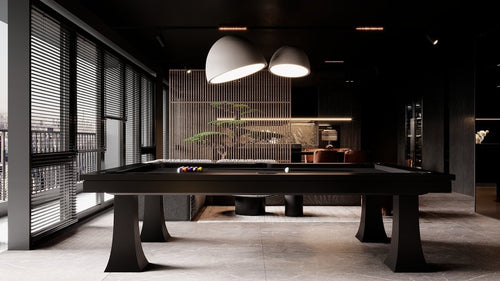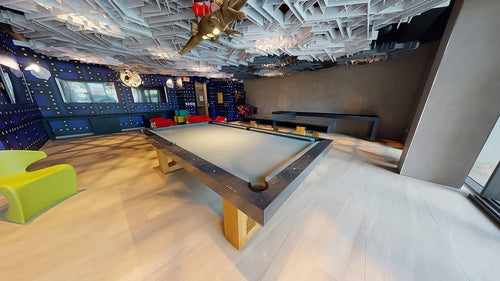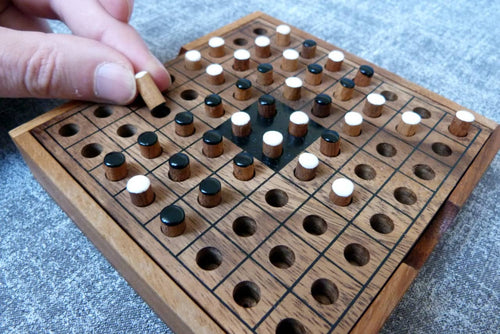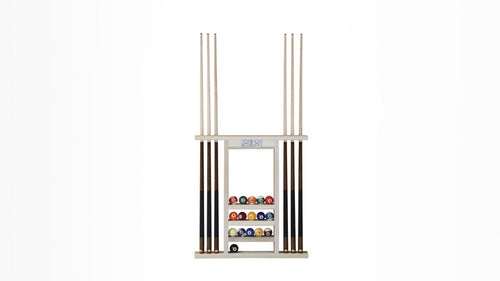Enjoy our modern designs
Pool halls and smoking were once inseparable. The smoky ambiance, filled with laughter, the pungent scent of cigarette smoke lingering in the air, and the unmistakable clatter of billiard balls echoing against the walls, created an atmosphere that was both gritty and comforting. It was a place where the haze of smoke seemed to slow time, allowing players to savor each shot and every conversation. However, as smoking laws tightened and society's attitudes shifted, pool halls have had to adapt to a new reality—one that has redefined both the atmosphere and clientele of these beloved establishments. The impact of smoking bans on pool halls was profound, changing not only the environment but also the overall experience for many patrons.
The Cultural Impact of Smoking in Pool Halls

For many players, the combination of cigarettes and pool was more than just a habit—it was a ritual. Smoking created a relaxed, laid-back environment that players connected with the game. The smoky haze over the pool table, the ashtrays set on ledges between shots—it was all part of the experience. Older generations fondly recall these scenes, a piece of culture where taking a drag off a cigarette after a well-placed shot felt like an essential part of playing the game.
As legendary player Efren Reyes once said, 'The smoke, the people, the atmosphere—it all made the game feel alive.'
When widespread smoking bans began to take effect, pool halls faced significant challenges, leading to a decrease in loyal patrons and forcing owners to rethink their approach to keep the business alive. Many loyal patrons felt that the character of these establishments was stripped away. With the absence of smoke, some long-time players even began avoiding their local halls, lamenting that something intrinsic had been lost. The ban wasn't just about prohibiting smoking; it was about redefining an experience that had once felt complete.
Adapting to Change: The Legislation's Ripple Effect

Smoking bans led to a significant shift in the clientele and culture of pool halls. To stay compliant with new regulations, many pool halls had to establish designated smoking areas outside. For smokers, these areas provided a space to continue their routines, albeit with less convenience, while non-smokers appreciated the cleaner indoor air and a more comfortable playing environment. These modifications often changed the social dynamic within the halls—conversations that once happened over a game now moved outside. The energy in the room shifted.
Some businesses tried to capitalize on the shift by rebranding themselves as family-friendly, hoping to attract a broader demographic of players, such as families and younger individuals who may have previously avoided the smoke-filled rooms. However, these changes weren't always smooth. In areas with deeply rooted smoking cultures, many pool halls saw a dip in attendance, struggling to bring in new players to replace those who had left.
For some venues, this shift was a death knell, leading to closures. But for others, adapting meant surviving. They focused on creating a welcoming environment for all—venturing into better air conditioning, cleaner spaces, and events that catered to a new generation of pool enthusiasts.
A New Generation of Players

Interestingly, smoking bans have given rise to a new kind of pool hall culture—one focused more on the game itself than the traditional trappings of smoking and drinking. This shift has also contributed to better air quality, longer stays, and increased enjoyment among players, which ultimately supports the growth of the sport. The halls that have thrived post-smoking bans are those that embraced the change, offering better food, entertainment options, and clean spaces for newcomers. These pool halls also optimized their services for families and health-conscious individuals, positioning themselves as a safe and enjoyable space for everyone. They've found a way to cultivate a culture that celebrates the sport, attracting a younger, more diverse audience.
The younger crowd often finds appeal in the healthier environment, with pool becoming a more approachable pastime rather than being seen through the lens of smoky, late-night hangouts. New players no longer have to endure secondhand smoke, and parents are more comfortable bringing in their teenagers for a round of pool.
The Future of Pool Halls

The impact of smoking bans on pool halls is undeniably a mixed bag. The change has closed some doors while opening new opportunities. For traditionalists, it may feel as though an era has ended, but for the industry as a whole, these changes have helped pave the way for a new generation of players. While some miss the nostalgic charm of smoke-filled rooms, newer players appreciate the healthier, cleaner environment that makes the game more inviting and accessible. Whether it’s nostalgia for smoky rooms or the appreciation of cleaner environments, pool halls continue to adapt, proving that the love for the game is here to stay.
The resilience of these establishments lies in their ability to redefine what it means to shoot pool in today's world—transforming smoke-filled dens of the past into welcoming spaces that bring together all kinds of people, even if the ashtrays are now just a memory.

















